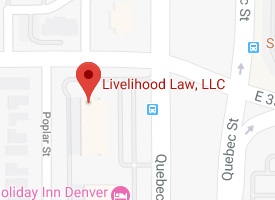FAQs: Workplace Violations for Remote Workers
What is Remote Work?
Remote work refers to work that is done from an alternate worksite away from the employee’s official worksite with the employer’s knowledge and approval. Employees who work from home instead of their employer’s place of business are remote workers. Employees who rent space at co-working spaces instead of working at their employer’s official worksite are also considered remote workers.
I am a Remote Worker; Do Workplace Anti-Discrimination Laws Still Apply to My Situation?
Yes. Under the Civil Rights Act of 1964, it is unlawful for an employer to discriminate against any individual because of “race, color, religion, sex, or national origin.” The Age Discrimination in Employment Act of 1967 protects workers against discrimination based on age (over 40 years), including older workers who struggle with new technologies in the workplace. And the Americans with Disabilities Act (ADA) of 1990 provides protection against discrimination due to disability. These protections apply regardless of whether the worker is in the office, on-site, traveling for work, or working remotely. If you believe you are the victim of workplace discrimination, reach out to our team.
Can Working From Home Be Considered a Reasonable Accommodation Under the Americans with Disabilities Act (ADA)?
Yes. Working remotely can satisfy the reasonable accommodation requirement of the Americans with Disabilities Act (ADA), which includes modifying workplace policies. However, it is important to note that an employer is not obligated to provide the employee’s requested accommodation, such as the preference for remote work. Your employer may offer other, equally effective alternate accommodations.
How Often Can Someone with a Disability Work Remotely as a Reasonable Accommodation?
That depends. An employee may work remotely only to the extent that is necessary to accommodate their disability. For example, one employee may require remote work for a set period of time (perhaps to recover from treatment or a procedure), while another employee may need to work remotely one day a week or more. In some cases, an employee’s disability may necessitate remote work on a periodic, unpredictable basis. It all depends upon the individual’s disability and the nature of their work.
Can I File A Claim for Workplace Harassment When I Am Working Remotely?
Yes. Unfortunately, you don’t need to be in the workplace to be the victim of harassment. The same legal protections against harassment in the workplace apply to remote workers. Any unwelcome conduct that targets people based on their sex, religion, race, or any other feature of a protected class is a form of harassment. Is your superior in the habit of texting you things of a personal nature? Is a colleague making inappropriate remarks during video calls? Workplace harassment crosses the line into being unlawful when enduring the conduct becomes a condition of employment, or becomes so pervasive that a reasonable person would consider the behavior intimidating, abusive, or hostile.



